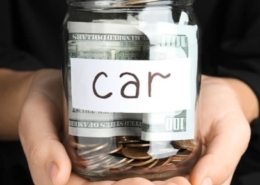Driven by Desire: How Emotions Steer Your Car Purchase
Caution: While emotions add flair to car buying, don’t let them take the wheel entirely.
Buying a car is more than just making a logical choice; it’s like embarking on an emotional journey.
Whether you’re really into cars and all their intricate details or view a car as a way to get from point A to B, your feelings guide your decisions.
Please consider this article a joyride where we’ll dig into the excitement, considerations, and ups and downs of how your emotions play a crucial role in shaping your path when deciding on the perfect car.
Car Buying Tip: If you’re in the market for a new car, you may have noticed that finding a reasonable price can be difficult in today’s market. Many car buyers end up paying more than the suggested retail price. But don’t worry! You can still get a great deal on a new vehicle by requesting a free car price quote to compare dealer prices in your area.
The Power of Emotional Decision-Making
Before we buckle up and hit the road, let’s understand the emotional engine driving our car-buying decisions.
Research suggests that emotions often take the driver’s seat, overpowering rational thinking in the showroom.
Purchasing a car solely based on emotions is a fascinating aspect of the psychology of car buying, where the heart often takes the wheel.
When purchasing a car, it’s not just about the horsepower or fuel efficiency; it’s about the emotional connection you forge with your future vehicle.
Why Car Salespeople Want Your Heart in the Driver’s Seat
Car salespeople are not just selling vehicles; they are maestros orchestrating a symphony of emotions to close the deal.
Here’s why they are keen on tapping into your emotional side:
Faster Decision-Making: Emotions speed up choices, reducing the chance of second thoughts or comparisons.
Establishing a Connection: Emotional ties build trust, making the transaction more than a business deal.
Enhancing Perceived Value: Highlighting emotionally appealing features inflates the car’s perceived value.
Upselling Opportunities: Emotional triggers open doors to upselling, encouraging you to stretch your budget.
Creating Lasting Memories: Positive emotions during the buying process create enduring memories of the car and dealership.
Minimizing Rational Evaluation: Emotional connections divert attention from practical considerations, focusing on the vehicle’s emotional allure.
Promoting Brand Loyalty: Emotional buying experiences aim for lifelong customers by tying positive feelings to a specific brand or dealership.
- How to Buy a New Car Below Factory Invoice Price – True dealer cost and the factory invoice price are not the same… dealer cost can be much lower.
- Figure a Fair Profit New Car Offer – How to calculate a fair profit new car offer.
- How to Buy a New Car Online – Not sure where to start? Use my step-by-step guide on how to buy a new car online.
Balancing Emotion with Practicality
The mere thought of buying a new car can send excitement down your spine.
The anticipation, the aroma of fresh upholstery, and the thrill of being the first to own a particular model are emotions that often overshadow practical considerations.
While these emotions add zest to the car-buying experience, balancing the emotional high and practicality is crucial.
Car manufacturers, savvy to the allure of these emotions, create sleek ad campaigns that evoke adventure and anticipation.
However, amidst the exhilaration, it’s essential to keep a clear head and ensure that your emotional attachment aligns with the practical aspects of the vehicle, such as fuel efficiency, maintenance costs, and long-term suitability for your needs.
After all, the joy of a new ride is best experienced when it seamlessly integrates with your lifestyle and requirements.
Reasons You Should Not Buy a Car Based on Emotions Alone
Buying a car is a significant decision, and while emotions add spice to the process, relying on them alone can lead to pitfalls.
Here’s why jumping into a car purchase based solely on emotions might not be the most brilliant move:
2. Budget Blowout
Falling in love with a car can sometimes lead to overspending.
Your emotions may cloud your financial judgment, causing you to ignore your budget constraints.
I promise you will be much happier with a car you can comfortably afford.
To avoid future stress, it’s essential to maintain a clear understanding of your financial limits and stick to them, even if the allure of a particular car is vital.
3. Overlooking Practical Needs
Love at first sight doesn’t always consider the nitty-gritty details of your daily life.
While emotional attachment is necessary, ensure the car you’re eyeing meets your practical requirements.
Consider factors like fuel efficiency, maintenance costs, and whether it suits your lifestyle in the long run.
4. Regrettable Choices
Emotional decisions can sometimes lead to regrettable choices.
Take your time during the decision-making process. Research thoroughly, compare options, and ensure the car meets your long-term needs.
Preventing regret starts with a thoughtful and informed approach to your purchase.
As you drive away, the thought of wishing you could return the car to the dealer might be something you’d rather avoid.
5. Sales Tactics
Dealerships are well aware that emotions can cloud judgment.
Be cautious of high-pressure sales tactics that play on your feelings to push you into a quick decision.
Take control of the situation, ask questions, and don’t be afraid to walk away if you feel rushed or pressured.
6. Long-Term Satisfaction
While emotional satisfaction is crucial, it doesn’t always guarantee long-term happiness.
Beyond the initial excitement, consider the functionality and durability of the car.
Consider how well it will suit your needs over an extended period, ensuring that your emotional attachment translates into lasting satisfaction.
7. Avoiding Impulse Buys
Emotional decisions can be impulsive, leading to on-the-spot purchases.
Resist the urge to succumb to the excitement immediately.
Please take a moment to think it over, weigh the pros and cons, and make a decision with a clear mind rather than being swept away by the emotional tide.
8. Comparative Shopping
Emotional decisions might hinder your ability to compare different options. Don’t limit yourself to the first car that captures your heart.
Explore different makes and models, visit multiple dealerships, and compare the features, prices, and financing options. Take advantage of free online car buying sources to help you comparison shop from the comfort of your computer or mobile device.
This ensures you make a well-informed decision based on a comprehensive understanding of the available choices.
Additionally, check free online car buying sources such as RydeShopper, Edmunds, and MotorTrend for free new car price quotes to find the best prices in your area.
FAQs About Emotional Car Buying
Can emotional decisions lead to impulse buying at the dealership?
Emotional decisions may increase the likelihood of impulse buying. Take your time, weigh options, and resist the urge to make on-the-spot decisions.
Can emotions influence the resale value of a car?
Yes, emotional decisions may lead to models with fluctuating resale values. It’s wise to consider long-term market trends.
Do emotions impact my ability to negotiate a better price?
Emotional decisions might make negotiation challenging. Researching and setting a budget is essential to stay firm during negotiations.
Will emotional buying decisions impact my overall satisfaction with the car?
Emotional satisfaction is crucial, but long-term contentment depends on the car’s practical aspects meeting your needs.
Should I prioritize brand loyalty over other practical factors when buying a car?
While brand loyalty is valuable, consider other factors like reliability, maintenance costs, and fuel efficiency for a well-rounded choice.
The Impact of Research Before Buying a Car
Are you ready to dive into the exciting world of car buying?
Equip yourself with knowledge – your ultimate sidekick, whether you’re eyeing a brand-new model or leaning towards a preloved gem.
This principle holds for both a fresh car’s shiny allure and a used one’s nostalgic charm. Thorough research acts as your guiding compass throughout this adventure.
Here’s why it makes a difference:
Smart Down Payments:
The money you choose to put down directly impacts your financing rates and monthly payments. A substantial down payment can significantly reduce your loan amount, potentially saving you interest.
Deciphering Dealer Profit:
Dealerships are in the game to turn a profit. Thanks to your research, understanding what constitutes a fair profit helps balance a good deal for you and a reasonable profit for the dealership.
Revealing Dealer Cost:
Peek behind the curtain and explore the dealer invoice price or cost. This insight into what the dealership paid for the car empowers you to negotiate effectively, aiming for a fair price for both parties.
Leverage Online Tools:
Before stepping foot in a dealership, leverage free online car-buying tools to grab local price quotes. Armed with these figures, you gain a ballpark estimate, ensuring you’re well-prepared and guarded against potential overcharges.
By being proactive and well-informed, you position yourself as a savvy consumer, ensuring not just a car you adore but a deal that won’t break the bank.
Remember: In the race of car buying, knowledge is your horsepower!


















